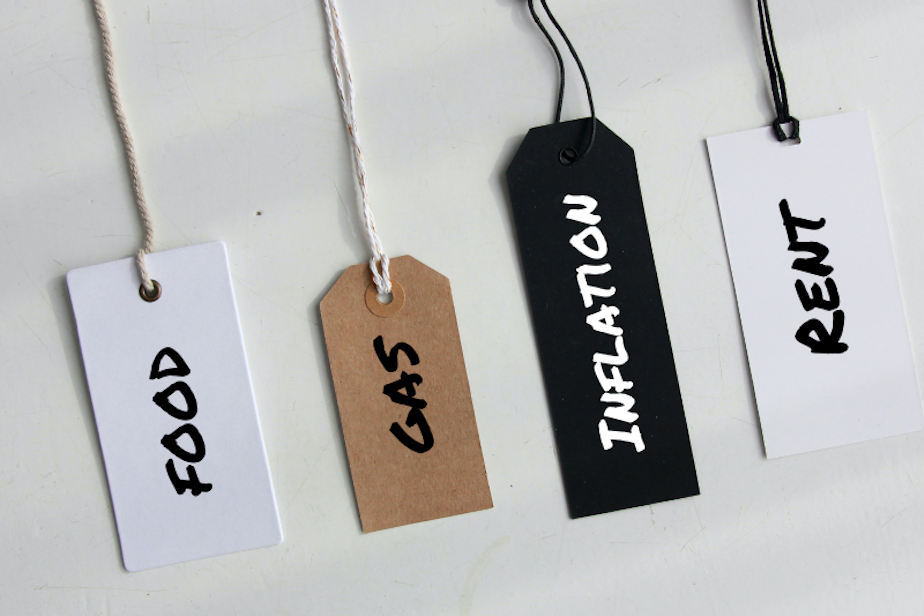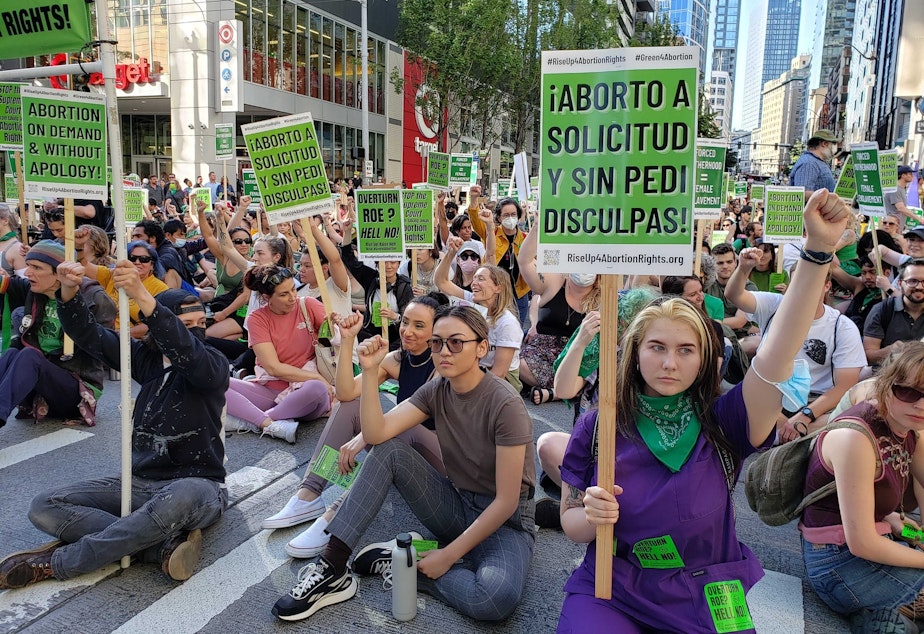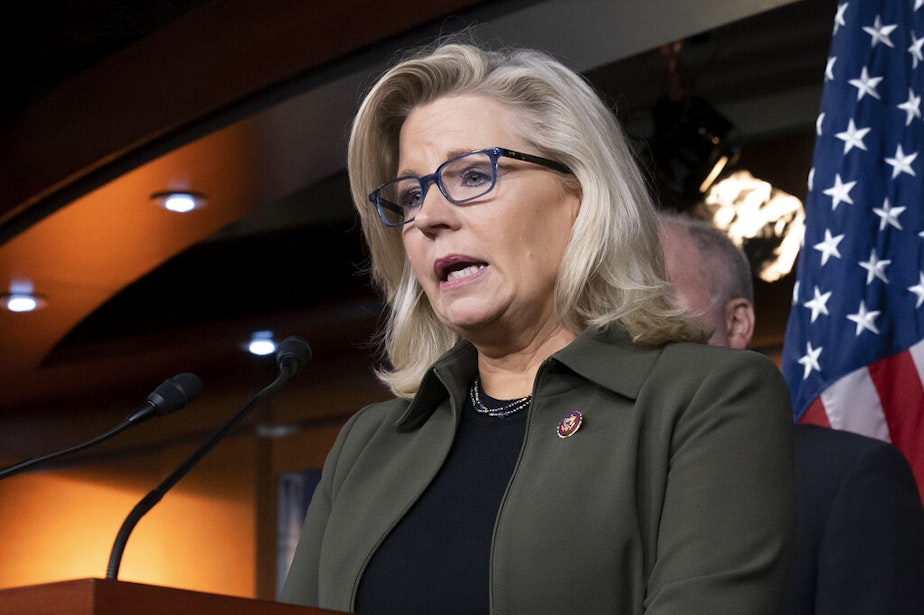Minimum wage vs your neighbors vs inflation: Today So Far

- Western Washington city aims to up its minimum wage to compete with neighboring towns.
- Will Seattle teachers stick around?
- Who leaked SPD info to the media?
This post originally appeared in KUOW's Today So Far newsletter for June 30, 2022.
After KUOW and The Seattle Times revealed that the Seattle Police Department's sexual assault unit was understaffed amid the recent loss of officers and detectives, an investigation was launched into who at SPD leaked the info. The Office of Police Accountability is looking into how an internal memo was leaked to the media. KUOW Reporter Ashley Hiruko is not divulging where and how she received any information. Watching her work up close, I doubt she ever will (frankly, I'm a little afraid of her).
Read the full story here.
Tukwila is considering an initiative that will raise the city's minimum wage by about $3. This would match the surrounding areas' wages, and hopefully draw in more workers. That's the argument put forward by initiative organizers. I would also put forth the notion that inflation is changing our financial landscape, which is something employers throughout our region are going to have to deal with. I'm no economic rocket surgeon, but even I can add up the fact that inflation has generally wavered between 1-ish and 2-ish percent, but we are now experiencing up to 6-ish percent. This means food is costing more and gas prices are way up there. Rent is always going higher. And Washington families who say they have a "very difficult time" meeting household expenses have gone from 4% to 10% within a year. If I was a Western Washington employer right now, I'd start thinking about worker retention and pay.
It's been pretty busy in the Today So Far Blog lately. Police caught a Bothell man mailing hard drives to people in the U.S. and overseas. What's wrong with that? Nothing ... except for when the hard drives are filled with meth. Also, the King County Council wants to change when you vote. One problem election officials have noticed is that fewer voters participate in odd-year elections — when there aren't any presidential, gubernatorial, or other high-profile races. So the county wants to move less popular elections to even-numbered years with the hope that more people will pay attention and vote. The idea has some naysayers, however, and ultimately you're going to decide on this issue.
And a third of Seattle teachers say they don't plan to stick around town in five years. The teachers' union surveyed its members (while it's engaged in negotiations), and among the takeaways is that many teachers don't see themselves in Seattle after that amount of time. Some indicate that they will leave the education field altogether.
AS SEEN ON KUOW

A group of people protests the Supreme Court of the United States' decision to overturn Roe v. Wade in downtown Seattle on Friday, June 24, 2022. Washington's Democrats gathered at the state Capitol recently to deliver a message: even as Republican states were shutting down access to abortion in the wake of the U.S. Supreme Court ruling, Washington was preparing to double down on its history that has, for decades, protected abortion rights. Read more here. (Casey Martin / KUOW)
DID YOU KNOW?
Love the Northwest, but get tired of the rain? A stretch of the Olympic Peninsula might be more your speed. Sequim gets about 18 inches of rain each year. But if you drive 70 miles west, Forks gets 120 inches of rain each year (which is why the sparkling vampires live there).
This is because of a phenomenon called the Olympic Rain Shadow, which covers Port Townsend to parts of Whidbey Island, and even the south ends of the San Juans and Vancouver Island. This area gets much less rain than the surrounding regions. Some have taken to calling it the "banana belt of Washington" or the "blue hole." The rain shadow even has a big fan, who has a website dedicated to studying it.
The cause of all this are the Olympic Mountains to the south, which block much of the rainy weather coming into the area. The rain ends up falling on the mountains to the south. What ends up making it over the mountains has a lot less moisture. And therefore, the communities north and east of the mountains get a lot less rain, and perhaps a little more sun. It's still the Northwest, however, so it generally stays pretty chilly.
ALSO ON OUT MINDS

The U.S. is facing a domestic threat from Trump, Liz Cheney says
Former President Donald Trump poses a "domestic threat" to the U.S. unlike any other, U.S. Rep. Liz Cheney said, telling her fellow Republicans that if they choose to back Trump's lies about a stolen election, they're also undermining the country. Her party is facing an existential choice, she said.

